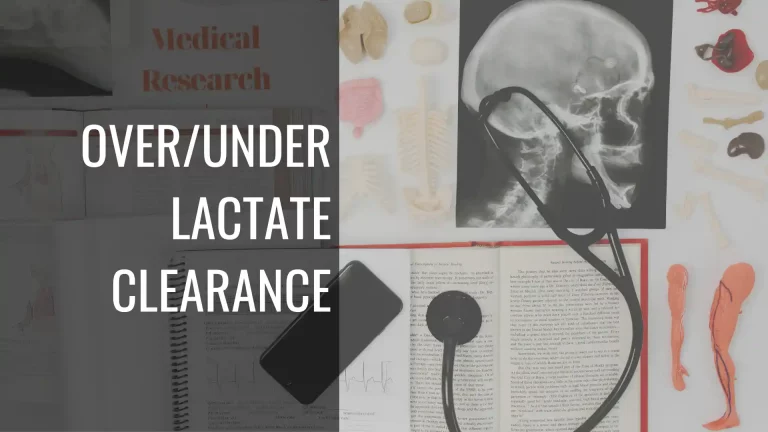
Table of Contents
Tips for Using Caffeine in Your Cycling Training
- Know your tolerance: Coffee is a popular source of caffeine, but you can also try energy gels, sports drinks, or pre-workout supplements to find what works best for you. Start with a lower dose of caffeine and gradually increase it to determine your individual tolerance level. Some people are more sensitive to caffeine than others, so it’s essential to find what works best for you.
- Time Your Caffeine Intake Strategically: Consume caffeine 30-60 minutes before your ride to maximize its effects. This timing can help you reap the performance benefits during your ride. Everyone’s body responds differently to caffeine, so experiment with timing your caffeine intake to see what works best for you. Some cyclists prefer to consume caffeine before their ride, while others may benefit from consuming it during their ride for a mid-ride boost
- Consider Your Overall Nutrition and Hydration: Caffeine can cause dehydration, so be sure to drink plenty of water before, during, and after your ride. Also, consider your overall nutrition, including carbohydrate intake, to support your training and recovery.
- Avoid Caffeine Overdose: Too much caffeine can lead to side effects like anxiety, jitters, and gastrointestinal issues, so be mindful of your total intake.
- Listen to Your Body: Pay attention to how your body responds to caffeine and adjust your intake accordingly. Some cyclists find that they perform better with lower doses or without caffeine altogether.
- Use Caffeine Sparingly: Caffeine’s performance benefits can diminish with regular use, so consider using it sparingly for key workouts or races.
- Don’t Neglect Other Aspects of Training: While caffeine can provide a performance boost, it’s not a substitute for a comprehensive training program that includes strength training, skill development, and proper recovery.
- Stay hydrated: Caffeine can have a mild diuretic effect, so it’s crucial to drink plenty of water before, during, and after your ride to stay properly hydrated.
- Consider the source: Caffeine can be found in various forms, including coffee, tea, energy drinks, and supplements. Choose the source that works best for you and fits into your overall nutrition plan.
- Combine with carbohydrates: Consuming caffeine along with carbohydrates can enhance its performance benefits by providing a dual fuel source for your muscles. Consider pairing your pre-ride caffeine with a carbohydrate-rich snack or meal for optimal results.
- Be mindful of caffeine withdrawal: If you’re accustomed to consuming caffeine regularly, be mindful of potential withdrawal symptoms if you decide to cut back or eliminate caffeine from your routine. Gradually reduce your caffeine intake to minimize withdrawal symptoms like headaches or fatigue.
- Listen to your body: Pay attention to how your body responds to caffeine during your rides. If you experience any negative side effects or discomfort, adjust your caffeine intake accordingly.
- Consult a professional: If you have any underlying health conditions or concerns about how caffeine may affect you, consider consulting with a healthcare professional or sports nutritionist for personalized guidance. They can help you develop a caffeine strategy that aligns with your cycling goals and overall health.
How the Half Life of Caffeine Works
Absorption: After you consume caffeine, it’s rapidly absorbed into your bloodstream through your stomach and small intestine. From there, it circulates throughout your body, including your brain.
Metabolism: Once in your bloodstream, caffeine is metabolized primarily in the liver by enzymes, mainly cytochrome P450 1A2 (CYP1A2). This process breaks down caffeine into various metabolites, including paraxanthine, theobromine, and theophylline.
Elimination: The breakdown products of caffeine are eventually excreted from your body through urine. The rate at which caffeine is eliminated depends on factors like age, liver function, genetics, and other individual differences.
Half-life: The half-life of caffeine typically ranges from 3 to 7 hours in healthy adults. This means that if you consume, for example, 200 milligrams of caffeine, after 3 to 7 hours, approximately 100 milligrams will remain in your system. After another 3 to 7 hours, about 50 milligrams will remain, and so on.
Individual differences: It’s important to note that the half-life of caffeine can vary significantly among individuals. Factors like age, sex, liver function, genetics, smoking status, and certain medications can influence how quickly or slowly your body metabolizes and eliminates caffeine.
It’s important to note that the effects of caffeine, such as increased alertness and energy, typically peak within 30-60 minutes after consumption. This is the time when you’re most likely to experience the “jittery” effects of caffeine. Additionally, the remaining half of caffeine can last longer than 5 hours, especially in people with caffeine sensitivities.
So, when considering caffeine intake, particularly before a workout or near bedtime, it’s essential to take into account its half-life and individual factors that may influence its duration in your body. As a general guideline, it’s recommended to avoid caffeine consumption at least 6 hours before going to sleep.
Timing is Crucial When Using Caffeine and Cycling
Common Questions About Drinking Coffee and Cycling
Does coffee improve cycling performance?
A: Yes, caffeine in coffee has been shown to improve endurance, increase fat oxidation, and enhance mental alertness, all of which can benefit cycling performance.
Is it okay to drink coffee before cycling?
A: Yes, many cyclists find that a moderate amount of caffeine can enhance their performance by increasing alertness and reducing perceived exertion. However, individual tolerance levels vary, so it’s essential to know how your body responds.
How much coffee should I drink before a ride?
When is the best time to drink coffee before a ride?
What are the potential side effects of drinking coffee before cycling?
Can coffee help with cycling endurance?
A: Caffeine has been shown to increase endurance by mobilizing fat stores and sparing muscle glycogen. It can also reduce the perception of effort, making long rides feel easier.
Are there any risks associated with consuming caffeine during long rides?
Should I drink coffee during a ride?**
A: Some cyclists prefer to consume caffeinated products like coffee or energy gels during long rides to maintain alertness and energy levels. However, it’s essential to balance caffeine intake with hydration to avoid potential side effects like jitteriness or gastrointestinal discomfort.
Can I get the same benefits from other sources of caffeine, like energy gels or sports drinks?
Will coffee dehydrate me during a ride?
A: While caffeine is a mild diuretic, the fluid in coffee more than compensates for its diuretic effect. So, moderate consumption of coffee before or during a ride is unlikely to cause dehydration.
Are there any downsides to drinking coffee before cycling?
A: For some individuals, excessive caffeine consumption can lead to jitteriness, gastrointestinal issues, or disrupted sleep patterns. It’s crucial to know your tolerance level and avoid overdoing it.
Does the type of coffee matter?
A: Different types of coffee contain varying amounts of caffeine, so the type you choose can impact its effects. Additionally, factors like roast level and brewing method can affect taste and caffeine content.
Can I replace water with coffee during a ride?
A: While coffee can contribute to your fluid intake, it’s not a direct substitute for water during exercise. Hydration needs vary based on factors like weather, intensity, and duration of the ride, so it’s essential to drink water along with coffee to stay properly hydrated.
Should I drink coffee after cycling?
A: Some cyclists enjoy a post-ride coffee as part of their recovery routine, as caffeine may help replenish glycogen stores and reduce muscle soreness. However, be mindful of consuming too much caffeine too late in the day, as it could interfere with sleep.
Coffee To Power Your Rides
Coffee and cycling share a unique relationship that goes beyond just a pre-ride ritual. Caffeine, the main active ingredient in coffee, caffeine, has been shown to improve cycling performance by increasing endurance, enhancing mental alertness, and promoting fat oxidation. However, it’s essential to time your caffeine intake strategically, typically 30-60 minutes before your ride, to maximize its benefits and avoid potential side effects. Additionally, individual factors such as genetics, age, and tolerance can influence how your body processes caffeine, so it’s important to listen to your body and adjust your intake accordingly.
Whether it’s enjoying a pre-ride espresso to kickstart your morning or savoring a post-ride coffee with fellow cyclists, understanding how caffeine affects your body and timing its consumption appropriately can enhance your cycling experience.
Its important to note that coffee/ caffeine is not a substitute for a comprehensive training program, proper nutrition, and adequate sleep. By incorporating caffeine into your cycling routine strategically and mindfully, you can enjoy its benefits while avoiding potential downsides. So, the next time you’re gearing up for a ride, consider reaching for a cup of coffee to help power your pedals and fuel your adventure on two wheels.
I hope you found this useful and informative. Please check out my other posts on cycling and tips & solutions as well. The post on consuming protein might be a relevant read. And a related podcast on hydration you can listen to. Happy Cycling!



